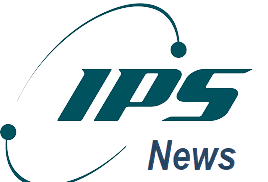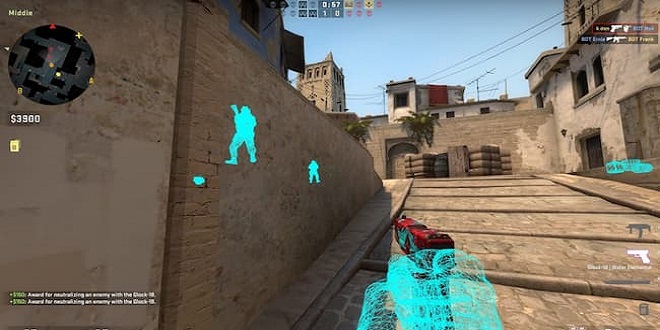Restoring Trust in Autonomous Vehicles with Chris Piche of Smarter AI

Welcome to episode 207 of Loud Pipes, the podcast that dives deep into the world of motorcycles, riding experiences, and motor technology. In this episode, we’re joined by a special guest, Chris Piche, the visionary founder of Smarter AI. Today, we’ll explore a critical topic: Building Trust Through Safety in autonomous vehicles.
Chris Piche brings a wealth of knowledge and experience, having pioneered Smarter AI, a leading software platform for AI cameras that monitors and analyzes road conditions to enhance safety and addresses broader transportation issues with innovative computer vision solutions. With an impressive background in computer science and a track record of developing cutting-edge Internet video products, Chris’ insights into the integration of AI cameras and computer vision solutions with automotive technologies are invaluable.
As we delve into discussions on the evolution of autonomous driving, the impact of AI cameras on personal data protection and privacy, and the future of motor technology, Chris will share his expert perspective on how advanced AI can significantly reduce traffic incidents and improve overall road safety. Join us for an engaging conversation on the potentials and challenges of integrating AI into everyday driving and how we can move towards a safer, more efficient automotive future.
Chris Piche:
When weighing the pros and cons of human drivers versus AI, a simple question emerges: would you rather have a computer that’s programmed to pay 100% attention at all times? Or would you rather have a human driver who’s been programmed to play with their phone?
Chad:
Easy answer.
Podcast Intro:
It’s time for Loud Pipes, the podcast brings you the best conversations about motorcycles, the riding experience, and other motoring adventures. I’m your host for this episode, Rich Warfield.
Richard Warfield, Jr:
Loud Pipes, episode 207. We’re going to have an interesting conversation tonight. We will discuss restoring trust and autonomous vehicles. We will also discuss AI, improved cameras, privacy, etc. But before we get started, we’ll bring in Boomer. What’s going on?
Chad:
What’s going on, man?
Richard Warfield, Jr:
Just relax in here. There will be no beverage tonight. I guess we’ll start dry for once. That’ll be something new.
Chad:
There we go. All I’m drinking is water.
Richard Warfield, Jr.:
Same here. I won’t bother cracking it, but it is Spindrift sparkling water. It has mango and orange flavors. It’s unsweetened. It’s pretty pleasant—nice, low-calorie, 12 calories if you will.
Richard Warfield, Jr:
Let’s get him on the show.
Chad:
That’ll work. So we were going to sit here and talk about all of this. I was always brought up with the idea that you don’t just sit there and have a problem without having a solution in mind. And since we were talking about all of these problems with the traffic and all of this stuff, we do have someone who can speak to us about future solutions, and that’s our guest this evening.
Richard Warfield, Jr:
It’s an exciting topic. And we have yet to talk about autonomous vehicles a whole lot. But back in the early days, we talked a lot about Tesla. Because Rico and I were fascinated with the Model S from a performance aspect. But we only talked about autonomous driving a little. Fast forward several years over the show, this stuff has evolved immensely. But there are some challenges. We were contacted by someone to set up an interview about the idea of restoring trust in autonomous vehicles. So we’re looking at this from a camera specialist perspective. Tonight’s guest is Chris Piche. He is the visionary founder of Smarter AI, the leading software platform for AI cameras, empowering them to see, listen, and understand. And we’re going to hear all about it. Chris, welcome to Loud Pipes.
Chris Piche:
Thanks for having me guys. I’m going to give away my heritage here with my cup of Timmies.
Richard Warfield, Jr:
Tim Hortons is welcomed. That’s good stuff. Do you have any Timbits or just the beverage?
Chris Piche:
I can’t eat the Timbits anymore. I used to indulge when I was younger, but I try to avoid them these days.
Richard Warfield, Jr:
That’s good stuff. I’ve done plenty of work in Canada over the years, so I’ve done plenty of Timbits in the past. Before we get too far, give us a little background on what you do, and then we’ll get right into the topic at hand here.
Chris Piche:
Sure. Thanks for having me guys. I have a background in computer science. I developed a few Internet video products and services over the years, including, if you remember, a few years ago – if you’re football guys – there was some great marketing involving the Manning brothers – Football on your Phone by AT&T. That was one of the better-known products that I developed earlier in my career. I founded Smarter AI five years ago. Smarter AI is a software platform for AI cameras. Smarter AI makes vehicle cameras and computer vision solutions for connected transportation, both aftermarket dashcams and OEM camera systems for car and truck manufacturers.
In most cases, our computer vision solutions solve common transportation problems: complacent, distracted, and unsafe driving. In other cases, our solutions solve “blue ocean” problems. For example, government customers use our cameras to study pavement quality. It’s like taking your roads to the dentist for a checkup. By using cameras and computer vision to study pavement quality, you can take preventative measures before potholes and other road damage develops.
So, whether our vehicle cameras are deployed by fleets, manufacturers, or governments, they increase public safety for all road users.
Richard Warfield, Jr: Got it. So, you guys are also focusing on data as much as you are on technology.
Chris Piche:
Absolutely, it’s all about the data. The precision of any AI system depends on the quality and volume of its dataset. Like most everything else, the quality of the output depends on the quality of the input.
Richard Warfield, Jr:
Those are such great points. I hope everyone notices and implements them immediately if they’re not already doing that. Thank you so much, Chris, for your time. I appreciate it. And thanks everyone for joining us today. I hope you have an excellent rest of your day.
Chris Piche:
Thanks for having me, Rich.





